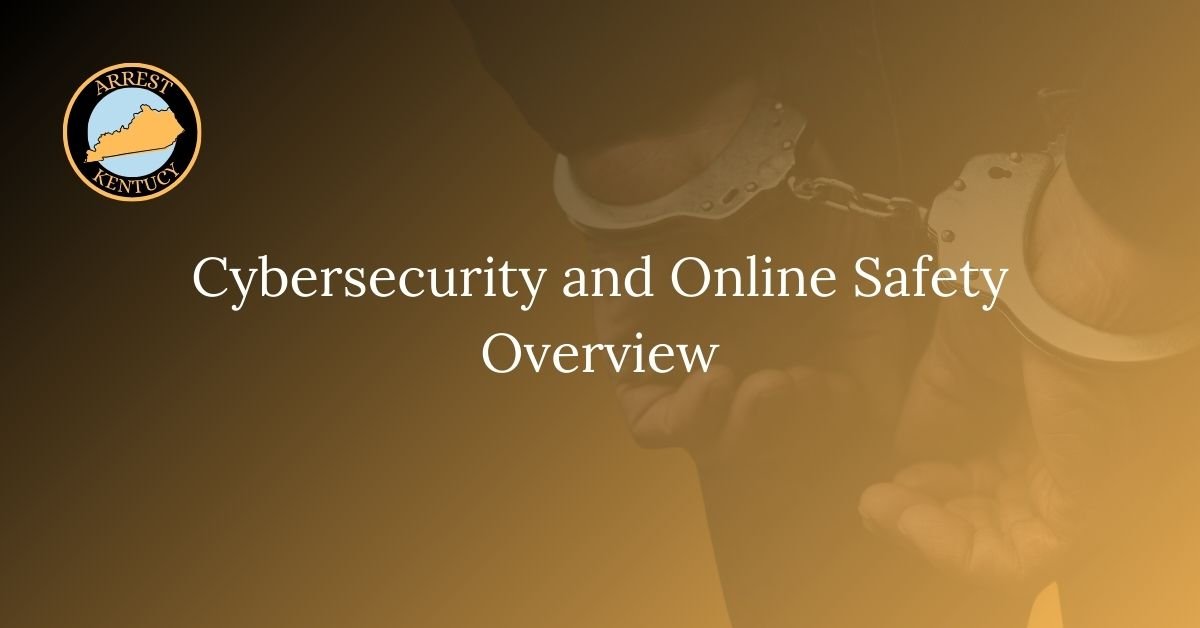Cybersecurity and Online Safety Overview

In the digital age, cybersecurity and online safety are crucial for both individuals and organizations. As our dependence on the internet grows, protecting sensitive information has become a significant concern. This guide offers essential information and strategies to enhance your digital security, helping you navigate the online world safely.
With evolving digital threats such as identity theft, phishing scams, data breaches, and malware, maintaining robust cybersecurity practices is vital. This article covers various aspects of online safety, providing practical advice to protect yourself and your data from potential cyber threats.
Cybersecurity Fundamentals
Cybersecurity is the practice of safeguarding computer systems, networks, and data from cyberattacks and unauthorized access. It is essential for protecting personal details, financial records, and intellectual property. As cyber threats like hacking, phishing, and ransomware continue to advance, ensuring strong cybersecurity measures is a constant necessity.
Improving Password Protection
Passwords are the first line of defense against unauthorized access. To create strong passwords, use a combination of uppercase and lowercase letters, numbers, and special characters. Implementing multi-factor authentication adds an extra layer of security by requiring a secondary verification method, such as a code sent to your phone.
Avoiding Phishing Attacks
Phishing attacks are deceptive attempts to obtain sensitive information by pretending to be a trustworthy entity. These attacks often come in the form of emails or websites designed to trick users into revealing login credentials or financial details. Recognize phishing attempts by looking out for suspicious links and unexpected requests for personal information.
Securing Personal Information Online
To protect your personal information, use privacy settings on social media and other online platforms to control who can see your details. Be cautious about sharing sensitive information and avoid responding to unsolicited requests for personal or financial data. Legitimate organizations rarely ask for such information via email or text messages.
Defending Against Malware
Malware, including viruses, spyware, and ransomware, can damage your devices and compromise your data. To guard against malware, install reputable antivirus and anti-malware software. Regularly update your operating system, applications, and security software to defend against the latest threats.
Safe Online Shopping Tips
Online shopping is convenient but can pose risks. Ensure a secure shopping experience by buying from reputable websites with secure payment systems. Check for “https://” in the URL and a padlock icon in the address bar to verify a secure connection before making a purchase.
Teaching Children Online Safety
As children increasingly engage with the online world, educating them about online safety is essential. Promote digital literacy and responsible internet use. Implement parental controls to filter content and set time limits to provide a safe and appropriate online environment for your children.
Frequently Asked Questions
For a comprehensive understanding of cybersecurity and online safety, refer to the FAQs section of your article for detailed guidance and common queries.
What is cybersecurity and why is it important?
Cybersecurity involves protecting computers, servers, networks, and data from digital attacks and unauthorized access. It is important because cyber threats are constantly evolving, and breaches can lead to data theft, financial loss, and reputational damage. Strong cybersecurity helps safeguard sensitive information and ensure privacy.
What types of cyber threats are common?
Common cyber threats include malware (viruses, ransomware, spyware), phishing attacks, Distributed Denial of Service (DDoS) attacks, social engineering, and insider threats. Each threat presents different risks and requires specific defensive measures to protect against.
How can I create and manage strong passwords?
Create strong passwords by using a mix of uppercase and lowercase letters, numbers, and special characters. Avoid using easily guessable information like dates of birth or common words. Use a reputable password manager to store and manage your passwords securely, and enable two-factor authentication (2FA) when possible.
What is phishing and how can I protect myself?
Phishing is a cyber-attack where attackers pose as legitimate entities to trick individuals into revealing sensitive information. Protect yourself by being cautious with unsolicited emails or messages that request urgent action or contain suspicious links. Always verify the sender’s email address and check URLs before providing any information.
What steps should I take if my device is infected with malware?
If you suspect malware on your device, disconnect it from the internet and run a scan with a reputable antivirus or anti-malware program. Follow the software’s instructions to quarantine or remove any threats. Regularly back up your important data to reduce the risk of data loss from malware infections.
How can I secure my data on public Wi-Fi?
When using public Wi-Fi, avoid accessing sensitive accounts or sharing personal information. Use a virtual private network (VPN) to encrypt your internet connection, protecting your data from potential eavesdroppers and ensuring a more secure online experience.






